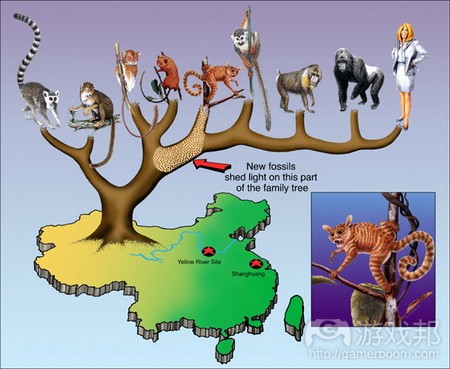解析游戏馈赠机制及其积极影响转变
游戏邦注:本文作者为Shehani Kay,文章主要解析社交游戏的馈赠机制。
小羊、小猪和鲜花,我们常常会从好友那收到这类礼物。有些用户会接受这些虚拟礼物,将礼物添置至空间,加入赠送礼物群体之列,而有些用户则会像某些Facebook粉丝一样排斥这些内容:“我丝毫不关心你的农场、小鱼、公园或黑手党组织。”
“馈赠”功能已嵌入众多热门社交游戏当中(游戏邦注:如《CityVille》和《FarmVille》),因此有些人将其称作“恶意垃圾引擎”。但事实上,这个看似简单的游戏机制是玩家互动的重要方式,“馈赠”是玩家参与游戏活动的起点,同时也是一大病毒式营销策略,它能够丰富游戏活动,提高玩家留存率。
显然很多游戏都是利用馈赠和互惠行为固有的社交心理法则。这是否会使游戏在娱乐某些用户的同时也惹恼些许玩家?我不这样认为(虽然惹恼玩家的游戏并非就是无益作品)。当然这取决于游戏设计师的目标和意图。此外,和其他游戏设计元素一样,这些机制只能通过一定技能方能实现。
下面就来谈谈玩家馈赠意图和互惠模式运作。
玩家馈赠意图
赠送礼物是玩家互动活动的重要而复杂组成部分。它帮我们明确关系,强化好友和家庭纽带。心理学家(游戏邦注:如哈佛大学心理学教授Ellen J. Langer)认为,赠送者,而非接受者,是礼物馈赠活动的最大精神收获者。赠送他人礼物让我们能够巩固同他们之间的情感,让我们觉得自己富有成效,懂得关心他人。留心他人需求将会获得他人的情感。
这同时还蕴含着某些根深蒂固的影响因素。例如,从进化论角度看,大方男性比小气男性生殖成功率高。而擅长给予,负责照料丈夫和子女的生活起居的女性生殖成功率也更高。
《生态学通讯》最近发布的灵长类动物梳理元分析表明,互惠心理在促进健康方面的重要性远超乎我们想象。进化论生物学家Filippo Aureli表示,灵长类动物通过梳理换取食物、保护或性交之类的东西,这些合作式交换有助于其健康,增加其生存机会或繁殖成功率。英国利物浦约翰莫里斯大学的Aureli和意大利国家研究委员会罗马认知科学和技术协会的Gabriele Schino仔细通读几份原有研究,目的是获悉灵长类动物梳理亲属和非亲属同伴的频率,以及对方的回馈频率。他们发现,与普遍看法不同,灵长类动物更倾向梳理那些曾经给予类似帮助的同伴(游戏邦注:不论它们之间的亲属关系如何)。研究表明,在14种不同灵长类动物中,20%的梳理传播行为是出于互惠目的,而只有3%是由于亲属关系。
互惠及利己目的
在社交心理学中,互惠是指以积极行为回应另一积极行为,以消极行为回应另一消极行为。这是种以牙还牙的回应。这和利他行为和社会馈赠不同,因为这两种行为不以获得积极回应为目的。
在文化人类学和文化社会学中,互惠是定义人们非正式商品、劳动交换行为,设定价值和本土兑换率的方式。
美国著名人类文化学家、《石器时代的经济学》作者马歇尔·萨林斯称,互惠行为有3种形式:
1. 一般性互惠(游戏邦注:多体现在家庭、好友、邻里和同事之间)是指不计价值的商品、服务交换行为,但他们通常认为价值会逐渐得到平衡。
2. 平衡或对称互惠是指希望获得同等有形回报的交换行为,通常数额、时间和地点都是既定的。平衡性互惠是直接的非个人交换,精确计算是其特征。物品类型、价值及付出和收获期望值通常相差不大。
3. 消极互惠是指以获取利益为目的的商品、服务交换,通常会损及另一方利益。其中包括经济学中的物物交换。消极互惠的信任度极小,社交距离极大;这常发生在陌生人当中。消极互惠是非工业化社会各群体创建友好关系的普遍方式。
社交游戏的负面影响
赠送虚拟道具是游戏在互惠行为(礼物将会换得礼物)中融入社交准则的方式(游戏邦注:这是利用玩家期望获得回馈的心理)。
社交游戏咨询顾问Tadhg Kelly认为,游戏(如《CityVille》)礼物经济活动的目标是让玩家领会到,如果他们尽可能多地送出礼物,他们将会在游戏中快速前进。“友好经济形态形成后,人人都能够从中受益。”
Kelly认为,《CityVille》等社交游戏其实是种利己社交,完全靠奖励驱动。
“社交游戏的一大讽刺是它们并非特别具有社交性。它们并不鼓励深层社交互动,因为此类互动对开发者来说毫无益处。社交游戏并非旨在成为玩家联系渠道或富有意义的体验。这是种截然不同的游戏,从游戏体验环境看,社交游戏很难实现上述目标。
相反,社交游戏是种娱乐活动。娱乐体验中的社交活动就好比赠与他人额外扑克筹码,他人或许也会给予回赠。这是种以奖励,而非慈善,为目的的互惠交易和互惠帮助。虽然这并不排除某人以慈善为目的进行赠送行为的可能性,但社交机制并不是出于此目的设置的,它们更多着眼个人利益。”
这番评价同法国社会学家、《礼物》作者Marcel Mauss对礼物馈赠行为的观点一致,他指出,礼物馈赠表面看是自发的慷慨行为,但其实是有目的的活动,赠与者将其视作义务,这种行为是基于经济学的利己主义。
英国社会人类学家、牛津大学社会人类学家教授John Davis也认同这个观点,他表示市场经济将自己伪装成礼物经济,充分利用馈赠法则及礼物不可抗拒性和回馈性特点(游戏邦注:不妨看看Hallmark贺卡)。
虚拟商品馈赠如今不再只是换取所需,而是变成出于自我利益,不顾及好友的游戏玩法。
馈赠机制的正面力量
利用自我利益和互惠刺激因素的“馈赠”机制之所以如此成功有几个原因。《Cityville》开发商Zynga堪称借助社交游戏,娱乐大众的大师。
此外,我认为馈赠在其他方面的影响也是非常显著的,例如,改变行为和促进健康。
社交游戏《HealthSeeker》使用“称赞”作为其馈赠机制。称赞和《CityVille》礼物的不同之处表现在两个方面:首先它不是垃圾引擎;其次它不是靠自我利益驱动。给予其他《HealthSeeker》玩家称赞的目的是表扬和鼓励他们的健康行为。这个社交交换活动能够培养合作意识,玩家并非独自作战,其背后有社区支持。最后,玩家创建的不是农场或城市,而是健康,我觉得这点更重要。
那么融入馈赠机制的目的何在呢?我想其最根本的原因是人类都有相互联系和加入社区的欲望。我们渴望互动,希望进行社交活动。休闲社交游戏让我们能够保持同他人联系。游戏馈赠机制不过是迎合我们的需求,我们渴望加强同他人之间的联系,我们希望联络和“刺探”他人,希望赠送物品,同时表示,“我想着你。”
利用这一需求,将机制转向积极目的,让社交游戏为社会谋福利的力量。促进人类健康的严肃游戏使馈赠机制产生积极影响,而不再仅是出于交换目的的游戏内容。(本文为游戏邦/gamerboom.com编译,如需转载请联系:游戏邦)
What is all this gift giving for?
by Shehani Kay
Sheep, pigs and flowers, we’ve all gotten these ‘gifts’ from our earnest Facebook friends at some point. Some of us have accepted these virtual gifts, installed and joined up, while others have instead become fans of Facebook groups like, “I don’t care about your farm, or your fish, or your park, or your mafia.”
The “gifting” feature as implemented in many popular social games like Cityville and Farmville has been called an “evil spam engine” by some. But the fact is, this relatively simple game mechanic is a powerful way for players to interact around the game – “gifting” acts as a jumping point for players to engage in and around the game. It is also a great viral marketing tactic that has the capacity to enrich the game experience and boost player retention.
That many social games exploit innate social psychological principles of gifting and reciprocity is obvious. Does this necessarily create games that annoy some as they entertain others? I don’t think so (although being annoying doesn’t say that it’s not useful). It depends on the goals and intentions of the game designer, of course, and like any other element of game design these game mechanics can be wielded with more or less skill.
Let’s begin with the why we give gifts and how reciprocity works.
Why we give
Gift giving is a complex and important part of human interaction. It helps to define relationships and it strengthens bonds with family and friends. Psychologists, like Harvard psychology professor, Ellen J. Langer, say that it is often the giver rather than the receiver who reaps the biggest psychological rewards from a gift. Giving to others reinforces our feelings for them and makes us feel effective and caring. And attending to someone else’s needs leads also to affection for the person attended to.
There may also be deeply ingrained evolutionary forces at work. For example, evolutionarily speaking, males who were generous may have had more reproductive success than those who were stingy (perhaps they still do). Women who were skilled at giving, which would help sustain the provider and their offspring, may also be more likely to be reproductively successful.
Results of a recent meta-analysis of all grooming in primates published in Ecology Letters suggests that reciprocity plays a more profound role in contributing to fitness than previously thought. According to evolutionary biologist, Filippo Aureli, primates exchange grooming for things, such as food, protection and sex, and these cooperative exchanges may promote an individual’s fitness, or their chance of survival and reproductive success. Aureli of Liverpool John Moores University in Liverpool, UK, and Gabriele Schino of the Italian National Research Council’s Institute of Cognitive Sciences and Technologies in Rome, combed through dozens of previous studies to quantify how often primates groomed relatives and non-relatives, and how often the favour was returned. They found that, contrary to the prevailing view, primates were more likely to groom others that had groomed them, regardless of their relatedness. The researchers reported that reciprocity alone explained about 20% of the variability in grooming behaviour in 14 different species of primates, whereas kinship alone explained only 3%.
Reciprocity or getting back as good as we give
In social psychology, reciprocity refers to responding to a positive action with another positive action, and responding to a negative action with another negative one. It’s the Tit for Tat response, which differs from both altruism and social gift giving since there’s no expectation of future positive responses.
In cultural anthropology and sociology, reciprocity is a way of defining people’s informal exchange of goods and labour, establishing value and local exchange rates.
According to Marshall Sahlins, a well-known American cultural anthropologist and author of Stone Age Economics, there are three kinds of reciprocity:
1. Generalized reciprocity (most often seen with families, friends, neighbours and coworkers) is the exchange of goods and services without keeping track of their exact value, but often with the expectation that their value will balance out over time.
2. Balanced or Symmetrical reciprocity is an exchange that occurs when someone gives to someone else, expecting a fair and tangible return – at a specified amount, time, and place. Balanced reciprocity is a direct, less personal exchange with a precise reckoning. There is more likely to be a similarity in type and value of objects and defined expectations about giving and receiving.
3. Negative reciprocity is the exchange of goods and services where each party intends to profit from the exchange, often at the expense of the other. It also includes what economists call barter. Negative reciprocity can involve a minimum amount of trust and a maximum social distance; indeed, it can take place among strangers. Negative reciprocity was a prevalent form of exchange in establishing friendly relations in nonindustrial societies between different groups.
Criticism of social games
Gifting of virtual items is a way for a game to harness social norms in reciprocity – to take advantage of the expectation that people will respond to each other in similar ways – that gifts will beget gifts.
Tadhg Kelly, a Social Game Consultant, believes that the goal of the gift economy in games like Cityville is to make players appreciate just how much faster they can actually progress in the game if they, at no cost, give as many gifts to each other as possible. “An economy-of-favours emerges, and everyone wins.”
According to Kelly, the truth about social games like Cityville is that it’s selfishly social and all incentive-driven.
“One of the ironies around social games is that they aren’t particularly social. They don’t encourage deep social interaction because such interaction is useless to the developer. Social games are not trying to be connections or meaningful experiences for players. That is a wholly different kind of game, and not one that they can easily become given the environment in which these games are played.
Instead, they are built as amusements. Socialising in amusements is more akin to having spare Poker chips at the table that you give to someone else, and maybe they’ll give you some back later. It is reciprocal trade, assistance for incentive, not charity. While this does not preclude the possibility that some players will engage in acts of charity for personal reasons, the social dynamics are not created with that in mind. They are built to work with self-interest.”
This assessment resonates with what Marcel Mauss, French sociologist and author of The Gift called the behaviour of gift giving that is superficially presented as spontaneous generosity but is actually carefully staged, seen as an obligation and has a foundation in economic self-interest.
And it also ties in with what John Davis, a British anthropologist and Professor of Social Anthropology in the University of Oxford saw as the market economy disguising itself as the gift economy to reap the benefits of the norms of having to give, not being able to refuse a gift and having to repay. Think Hallmark greeting cards.
Gifting virtual gifts, then, becomes not about giving so much as it is about getting needed items back. It’s about perpetuating game play for self- interest and not about caring for your friends.
Can gifting be redeemed?
These are some reasons why the “gifting” game mechanic, which exploits both our drive for self-interest and for reciprocity, is so potent. It taps into a part of us that’s primal, selfish and quite beyond reason.
Cityville cleverly pulls in and retains players through more than this one game mechanic, of course. Zynga, Cityville’s creators, are masters at using social gaming hooks to entertain the masses.
Still, I think gifting can also be used to similar effect for a different purpose – to change behaviour and promote health, for example.
HealthSeeker, uses ‘kudos’ as its gifting mechanic. Kudos differs from Cityville gifts in two crucial ways – it doesn’t function as a spam engine and the motivation for giving isn’t driven by self-interest. Kudos are given to other players of HealthSeeker to congratulate and encourage healthy behaviour. There’s a fostering of cooperation in this social exchange – you’re not in this alone – you have a community who are behind you every step of the way. At the end of the day, it’s not your farm or city you’re building but your health, which I think is rather more important.
So what’s all this gifting for? I think its roots lie in the poignantly human desire to connect and belong to a community. We yearn to interact, to be social. Casual Social Games allow us to stay connected however tenuously to others. Gifting in games mimics our real desire to solidify our bonds with others, our need to reach out and “poke” someone, our longing to give and to say, “I’m thinking of you”.
Harnessing this urge and channelling it for positive change is how games can become a force for good in this world. Serious Games that promote health and wellness can make gifting redeeming and not simply redeemable.(Source:ayogo)
上一篇:解析社交游戏设计之病毒式传播功能
下一篇:解析社交游戏设计之用户留存率










































 闽公网安备35020302001549号
闽公网安备35020302001549号